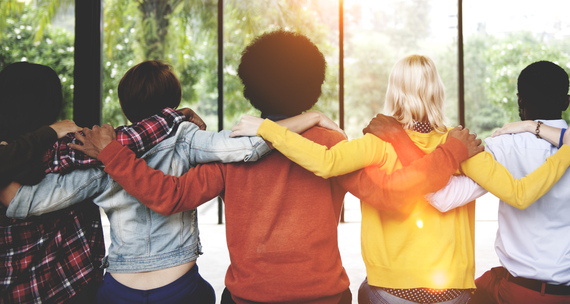Here we are again -- only this time the issue of racism and bias has been ignited by the 2016 Presidential Candidates and it is more divisive than ever before. Because of this it is critical to explore new perspectives about race relations and to engage in a conversation that can be constructive and transformative. I have found that the most meaningful discussions start from a point of common ground. The conversation must start with the acknowledgment that we all have bias. Whether you are male or female, African-American, Asian-American, Latino, Caucasian, Gay, Lesbian, Transgendered, Muslim, Christian, Jewish, Hindu, with or without disabilities, we all have preconceived notions and make stereotypical judgments about people. It is how our brains work! It is our common subjectivity.
Studies of unconscious bias reveal that by five years of age, many children have definite and entrenched stereotypes about blacks, women, and other social groups. As children, we constantly appraised our environment and formed conclusions about our world. For example, if we didn't see Black or Asian children on our Saturday morning cartoons, we may have assumed that Blacks or Asians were not as good. If we didn't see women holding positions of power, we may have concluded that women were less than men. If we saw few, if any, Black or Asian children at school, we may have judged that something was wrong with them. We were just trying to make sense of our world. We were young, and we didn't have the cognitive ability to evaluate the validity of those assumptions or conclusions. And no matter how progressive our parents might have been, as soon as we walked out the door, we had to confront peer pressure, the media and the social structure that promulgated these stereotypes. As a result, these biases and conclusions that we formed as children became hardwired in our neural network, dictating our thoughts about, and steering our automatic behavior toward, certain groups of people. As children we had no choice.
As adults we do. We not only have a choice, it is our responsibility to understand our assumptions and control our automatic behavior. Our greatest power as human beings is the power to choose. We have the power to choose how we respond to people who do not look like us. We are not victims of our minds: our beliefs, thoughts, or our prejudices, especially those we have never questioned. For example, the dictionary definition of prejudice is: "preconceived opinion that is not based on reason or actual experience." We rarely question the validity of our prejudices. It is a form of subjectivity, mindlessness and powerlessness.
This begs the question: Why do so many people choose to think and act based on preconceived notions, not based on reason or reality? Why do so many people choose to be subjective, mindless and powerless when they can choose not to be?
Neuroscience has revealed the power of our minds to shape every aspect of our lives. We are not powerless over our biases, prejudices and ways of thinking that can diminish, cause hurt, outrage and divisiveness in others. We can learn to be more objective. Instead of being mindless, not questioning our prejudices and acting automatically, we can consciously choose our behavior toward everyone we experience.
It is time for us as human beings to be better, to evolve into a higher state of being.
This blog is a first in a series of blogs to provide a blueprint for why we should and how we can evolve!
Excerpts from: The Objective Leader, How to Leverage the Power of Seeing Things As They Are

